第27章
"Why, then," said Louis XV laughing, "do you not follow the advice of the comtesse?""Because I entertain a sincere attachment for her, and that I am vexed to hear it said that there are persons who lead your majesty.""Who are the insolents that hold such language?""They surround you, sire. There is not a female here but affirms that you dare not decide on the presentation of the comtesse.""I alone am master, and will let them know it when the opportunity arrives; but the present moment is not fitting. The comtesse knows how well I love her; and if she will prove her friendship towards me, she will remain quiet for some time."The duke thought it best to be silent, and came to me. After relating the conversation, he added, "Do not appear at all dejected;the king would not then visit you lest he should find you out of temper. Were I you I should write to him; a word of peace would set him at ease."I approved this advice, and instantly penned the following letter: --Sire -They tell me that your majesty has been tormented on my account. It is a treason of which I alone could believe myself capable. But why should I complain? You have done so much for me that I ought to esteem myself happy: your august friendship consoles me thro' all my annoyances. Be assured that henceforth I shall pout no more; I will be the best sheep in the world, relying on my shepherd for not having my fleece cut too closely;for after all I think I am the petted ewe, etc."A short time afterwards a page brought me a splendid box of
with a pair of ruby ear-rings surrounded with diamonds, and thisshort billet: --"Yes, assuredly you are my pet ewe, and always shall be. The shepherd has a strong crook with which he will drive away those who would injure you. Rely on your shepherd for the care of your tranquillity, and the peace of your future life."In the evening the king visited me. He was embarrassed, but I set him at ease by showing him a laughing countenance, talking only of his present, which I had in my ears, and shaking my head about to keep the drops in motion, which sparkled with great brilliancy.
He was pleased at this, and did not leave me all the evening. In the morning we were the best friends in the world.
Some days elapsed, when comte Jean came to me, bringing two infamous articles which had appeared in the ","and were directed against me. They were atrocious and deeply chagrined me: I placed them on the mantel-piece, where all who came in could see them. The duc de Duras read them, and said, "Conceal these atrocities from the king.""No," was my reply, "I wish him to read them, that he may know how his affections are respected, and how the police of Paris are employed in doing their duty to the throne."These last words annoyed M. de Duras, between whom and M. de Sartines there was a connection: the duke was indebted to the lieutenant-general of police for the special surveillance which he kept over a young girl of whom he, the duc de Duras, was foolishly enamoured. Trembling for his M. de Sartines, he wrote to him in haste, but had not courage or talent enough to undertake the defence of the guilty person.
The king came as usual; his general station was at the chimney-piece, where he amused himself with looking at the baubles that ornamented it. The "" fell in his way. He read them once, then again; then, without uttering a word, threw them into the fire. I observed him, and saw that he was full of emotion which he sought to conceal, but the anger burst forth soon. The prince de Soubise, who supped with us that evening, asked the duc de Duras if he had read the """No," was the reply; "I seldom read such nonsense.""And you are quite right," said the king. "There is at present a most inconceivable mania for writing. What is the use, I ask you, gentlemen, of this deluge of books and pamphlets with which France is inundated? They only contain the spirit of rebellion:
the freedom of writing ought not to be given to every body.
There should be in a well-regulated state seven or eight writers, not more; and these under the inspection of government. Authors are the plague of France; you will see whither they will lead it."The king spoke this with an animated air, and if at this moment M. de la Vrilliere had come to ask for a
against a writer, the king would not have refused it.
"Besides," added the king, in a tone of less anger, but no less emphatically, "I see with pain that the police do not do their duty with regard to all these indignities.""Yet," said the duc de Duras, "M. de Sartines does wonders.""Then why does he tolerate such insults? I will let him know my discontent."The duc de Duras was alarmed, and kept his mouth closed. The king then, resuming his gaiety, joked the two gentlemen on their secret intrigues: then changing the conversation suddenly, he talked of the expected arrival of the king of Denmark.
"Duc de Duras," said he, "you and your son must do the office of master of ceremonies to his majesty. I hope you will endeavor to amuse him.""Yes, sire."